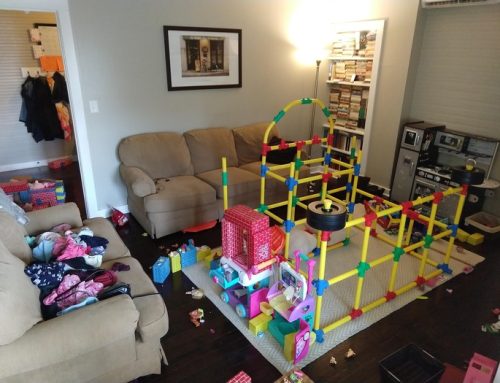Pretty much every coaching client I’ve ever worked with brings up the “lazy” judgment. They’ll make comments such as, “I was so lazy, I just did nothing all day.” Or, “What’s wrong with me today, why am I so lazy? Why can’t I just get things done?!”
Sometimes they’ll even ask me to make the judgment for them: “Caroline, am I lazy? What do YOU think?”
Personally, I subscribe to the Devon Price theory of laziness, which is simple and counter-cultural: laziness does not exist. At least, not in the sense that we think it does.
We talk about laziness as if it’s a character trait, whereas my experience has been that it’s a symptom of a deeper issue.

Why am I so lazy and unmotivated?
Here’s my theory: There are three instances in which people start throwing around the word lazy as a self-judgment. Which one do you relate to most?
So-called “laziness” scenario number one: You are actually doing a huge amount of work, but you don’t see it that way. This is perfectionism and workaholism, not laziness.
So-called “laziness” scenario number two: You are not doing very much, because everything you do seems to require massive effort. This is illness, exhaustion, burnout, or all three, not laziness.
So-called “laziness” scenario number three: You are not doing very much, because you are scared of your next steps. This is fear, not laziness.
Let’s take them one by one, starting with the first scenario in which you are actually doing a huge amount of work, but you don’t see it that way. In this case, your perception of what constitutes “lazy” has gone seriously awry.
This happened to me when I first became a parent. Juggling the demands of caring for a newborn, while weathering an unprecedented global pandemic, while running my business, while writing my first book, was a real roller coaster!
At times I felt unmotivated, and I judged myself as lazy. In hindsight, I can see that that was utter insanity. I was doing a huge amount of work every single day.
Research backs me up; according to a 2000 study, the average working mother works about 98 hours a week! That’s the equivalent of two full-time jobs.
Another good example of this so called “laziness” scenario comes from Melody, a reader who wrote in to ask me what to do next in her business. She was in her first solo year of running a publishing company at great expense to her health and well-being.
As she wrote:
“I love what I’m doing, and there is more I want to develop … yet there are many days I wish I could walk away.
Over & over I hear that you need to show up and do the work, that entrepreneurship is hard work, but I don’t want to waste years of good health & decent energy levels working 14 hrs a day to hopefully one day be successful …
Every time I slow the pace or take a short break, the catching up is overwhelming.”
Did you catch that? Melody was working 14 hour days – yet part of her secretly wondered whether she should be doing more!
To hear what I suggested as Melody’s next move – and where I decided to pull the plug in my own life and business – press play on this “Ask Caroline” video.
Can you relate to Melody in this? Have you ever worked as hard as you can on a business, a relationship, or a creative project, then judged yourself as lazy when you weren’t getting results?
At times like these, the answer to “Why am I so lazy and unmotivated?” is simple: You’re not! You’re just pouring your energy down a sinkhole, trying the same things over and over rather than shifting strategies.
The solution is not to work harder; rather, the solution is to ask different questions. If we take the self-judgment out of it, the real issue becomes clear. It’s not about proving our worth; rather, it’s about knowing when to keep at it, and when to pull the plug.
If this is you, here are three questions to ask yourself:
- What am I trying to prove? (Or, whose approval am I trying to win?)
- What job, relationship, or way of being am I keeping on life support, when I need to let it go?
- What would I do if I was absolutely free?
Am I lazy or burnt out?
Now, let’s explore so-called “laziness” scenario number two: You are not doing very much, because everything you do seems to require massive effort. In this case, you’re usually sick, exhausted, burnt out, or heaven help you, all three.
If you’re asking, “Am I lazy or burnt out?” – the odds are, you’re burnt out. I recommend Dr. Dina Glouberman’s book The Joy of Burnout as a phenomenal resource; it has carried me through burnout and back to life again.
If you’re burnt out, I’m going to risk stating the obvious: you need time and space to rest and do nothing. Often this is your best medicine. But if you’re a recovering perfectionist or an insecure overachiever (or both!), the thought of doing less probably feels scary.
One of the first things I recommend to coaching clients when we start working together is that they take a full day off per week. To be clear, this means a full day without self-pressure, without expecting themselves to be “productive” in any way.
They may take care of small children and/or pets if needed, but otherwise, they do not “get things done.” They devote a day to just being.
Many of them are shocked at this suggestion. My experience has been that the more shocked they are, the more they need the rest. The more they identify with their busy mind, the more they need to do nothing.
If taking the pressure off for a day feels daunting for you too, let me reassure you: it’s paradoxical, but you find your purpose by subtracting, not adding.
And for the real pragmatists among us, know this: It’s much less costly to build in intentional rest and restorative time prior to complete burnout.
Listen as Robin, a reader and former senior leader describes what happens when we don’t step away:
“I left my job as a senior leader in Education 5 years ago due to a complete breakdown- I had a significant bereavement and other family concerns, on top of which at work, I was overwhelmed by everything, felt terrible about myself, I had totally lost perspective and basically just could not cope anymore.
In hindsight it was quite a toxic environment but as an empath and a fixer I had just plowed through it for years, neglecting myself and focusing on everyone else, telling myself it was the best thing for the children I worked with and I just had to get on with it.
I got to the point where I had nothing left, I could no longer function and left a career I had always been in. I struggled with the loss of identity, felt quite fractured and disconnected as a person, both to myself and others and really didn’t know who I was anymore.”
When Robin wrote to me, she’d been working part-time but felt very stuck trying to decide what to do next. Her fear of going back down the burnout path was preventing her from moving forward.
How could Robin connect with herself, find peace, and discover what to do next? Press play to hear my response.
- What would I do if I didn’t feel guilty?
- What’s the number one issue that’s draining me? How can I resolve it?
- What do I need to do, or not do, to refill my energy tank? (Remember that rest is only one part of the equation; we also need joy!)
Do I lack motivation or am I lazy?
Lastly, we have so-called “laziness” scenario number three (touched on in the video above): You are not doing very much, because you are scared of your next steps.
In this instance, “Do I lack motivation or am I lazy?” is not a helpful question, because it sets up a false choice. Your lack of action has nothing to do with lack of motivation or laziness. Deep down, it’s really and truly about fear.
I once had a coaching client who struggled mightily with this issue. We both knew she was smart and very capable; she’d been the valedictorian of her competitive high school class.
But the process of getting to the top of her class had been very damaging to her body, mind, and heart. She had a huge fear response around diving into another big project, a huge wound around achievement.
She judged herself as lazy and unproductive, when the truth is, she’d ended up avoiding work precisely because she’d been so hardworking in the past!
Once she got in touch with her fear, she was able to tell the truth: “I’ve been terrified of putting effort into anything. I’ve built up the belief that I can’t accomplish something significant without hurting myself.”
This was a huge AHA moment! She could see that laziness wasn’t the issue at all. The issue was this false belief, the idea that accomplishment equaled self-abandonment.
When it comes to our emotional-level hurts and wounds, we go very gently. Instead of putting more pressure on ourselves and pushing ourselves to “fix” it, we take small steps in the direction of healing and wholeness.
One practical way to do this is to practice what my favorite coach, Dr. Martha Beck, calls Kind Internal Self Talk (KIST). When my coaching client noticed herself going into the old self-judgments: “You’re so lazy! You’re not a real adult!”
… we would stop. Take pause. I would invite her to take a breath, then practice saying something kind (and true) to herself instead.
For example:
- You’re safe right now.
- You’re doing the best you can.
- It’s OK. I’m right here.
- You’re not a monster; you’re just a little bunny, working through your issues. (Hat tip to my fellow coach and author Jen Sincero for that one.)
Invariably, my client’s body would relax, and her fear would abate. Such is the power of kindness.
So many times, we try to skip over kindness — we try to go directly from a place of deep fear into massive courage, productivity, or creativity. As you may have noticed, this simply doesn’t work!
Martha Beck’s book Beyond Anxiety teaches us that we go from fear to kindness to creativity — and every step is essential. So if your real issue is fear, here are three questions to ask yourself:
- What do I need to feel loved and safe?
- How can I provide that for myself?
- What kind words do I most need to hear today?
How do I know if I’m lazy?
Trick question, we already know you’re not! We already know that you’re either overworking, exhausted/burnt out, or scared. So let’s ask different questions.
For example: What would you do if you didn’t feel guilty? What would you do if you were truly free? Can you imagine that?
Here’s what that might look like …
Instead of exhausting yourself so that everyone else is okay, you’d take time to listen to yourself. You’d discover what you want and who you really are.
Instead of appearing to have it all under control and managing people’s expectations, you’d pay attention to whether you, yourself, are happy.
Instead of splitting your time into so many pieces, you’d make time to enjoy your life and do the things you love. The weight of worry would slide off your shoulders, and what a relief that would be. It would all feel so much more peaceful.
Instead of forcing yourself to stay, you’d leave, or quit – finally! You’d give up the things that don’t serve you, and make room for those that do. You’d do the things you love.
If you’re completely honest with yourself, you already know what you need to do next. You just need to take the voice inside of you, and let it guide your decisions on the outside.
Those of you who are literary nerds like me may remember learning about the Hero’s Journey framework, famously identified by Joseph Campbell. The first few steps are:
1. The ordinary world.
2. The call to adventure.
3. Refusal of the call.
4. The mentor.
Here’s how this translates:
You’re going about your ordinary life, thinking it won’t change, and then you get the call to adventure. The voice of your soul that says to you: “Go, move, do this, quit that, be brave.”
This is terrifying, so you do what any sane person would do – you refuse the call! You hang up the metaphorical phone! You say, “That’s too much for me. I’ll just stay here in denial.”
But the call is really persistent. It keeps showing up and tugging at your sleeve. It will not leave you alone. You shame yourself for not answering, for being weak or “lazy” … but the truth is, you’re very scared.
You’re being pulled forward into the future, even as you’re also clinging to the past. As a result, you feel incredibly stuck.
Then, just as you can’t take the inner conflict any more … a mentor appears. Often they show up suddenly, taking a form you don’t expect.
The mentor’s role is not to tell you what to do or where to go. Rather, they are there to help you learn how to trust what you already know, and become who you already are.
Your true self is always generative, always creative. Laziness simply doesn’t factor into the story.
Rediscover your true self.
Enter your email address below to receive the Sacred Circle Exercise, a step by step process to help you get in touch with what’s most important to you now, and free up time to devote to it.



I do believe grief can also be incorporated into “laziness” scenario number two. I have certainly noticed it in close family members – maybe even me.
You make an excellent point, Bridget – going through the grieving process takes a lot of physical, mental, and emotional bandwidth, and that can look like “lazy” to the untrained eye. I’m sorry to hear that you know it firsthand.